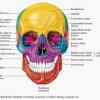I find this thread extremely interesting,
On meditation and general reduction of stress, two points:
1)
find to relax and be in the right mindset for meditating. The notion of FALLING is useful to me.
When there is too much overwhelm, too tired, too depressed, too sick of it or whatever. I just realise we are falling all the time. Yes, falling to the ground
we are falling through time, falling towards probably a certain financial future, falling towards our destiny, our genetic predispositions, sometimes we panic
and we grasp out onto things that we hold on to for a while before slipping and falling again. In the end we will hit that metaphorical ground, we can change
where we land , but we can't go against gravity.
Since we are falling anyways, why panic? why not just enjoy the fall? Why not fall in style? (quote toy story) When I realise time is falling away drop by drop no matter what I choose to do or not do no matter how lazy, uncomfortable, euphoric, etc. I realise its that whole notion that life is like a movie or rollercoaster, but falling works for me because its inevitable and fighting against it is pointless.
2)
Accepting your body state first is more important than meditation itself, most meditation starts off assuming you are already comfortable, most of us live in perpetual stress
which is normal. The issue is you can't really force yourself to control your breath, doing so wastes willpower. The best way to start is to start by letting your awareness
drift to how your body is acting, instead of "doing" meditation". I find just accepting how your heart is beating, how your breaths are currently being, where is your tension, just by those itself
in many ways beats actually doing meditation in my experience.
On Biofeedback:
I have been experimenting with brain hardware due to development of my own website, however having played with some biohardware, i've found the results to be a little bit disappointing for me so far. I haven't tried tagsync neurofeedback so far or advance brain entrainment, but the other things i've tried and read haven't been that beneficial or encouraging.
My interest is more with productivity rather than ascendency per say, but having a plenthora experiences with medications and drugs - I just don't have high hopes for it at the moment, which I did initially. In terms of inspiration and understanding, dropping a psychedelic once or twice in your life, radically changes your thoughts on your own perception. In terms of productivity I fail to see how this would generate more energy vs a can of redbull. I am still working on understanding it, there is a lot of material to cover.
Also reviewing literature there are a fews studies where they showed neurofeedback had essentially had no effects, even on ADD subjects, which neurofeedback is claimed to have the largest effect. Also this idea of alpha, beta and theta etc has also been questioned, and are based on some very old ideas of how the brain works. Its actually kind of now questionable whether the brain even works in this way, which would explain why binaural beats largely seem to fail to inccur much state change, when it should theoretically.
From the ideas I have been presented so far on various websites, I have good reason to sort of suspect current marketers/clinical centers veer towards pseudo-science. (I am not smart enough to conclude though).
I think a good barometer for me is - does the said treatment work better than a cup of coffee?
As for coherence training and biofeedback hardware/software etc. I find it "okay" to bridge the time gaps between supplements/medications, but they definetely don't seem to be on the same calibre, which is surprising given the effects manual meditation actually has without hardware support. Probably its just that nobody has nailed it in regards to creating a really useful effect yet, for everything there are literally hundreds of different protocols, with no seeming concensus on what works and what doesn't.
Also when we look at athletes or superb neurotypicals, we are more likely to be looking at the result of good genetic expression which confounds the result. To me optimising great genetics is a very different thing to fixing a dysfunctional one.
I think Tagsync may be a much more innovative protocol, I am really liking what I am reading (in terms of the technical breakdown), but only with tagsync.
Edited by Major Legend, 02 November 2014 - 07:46 AM.


























































